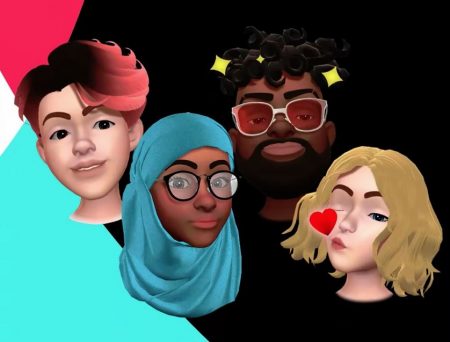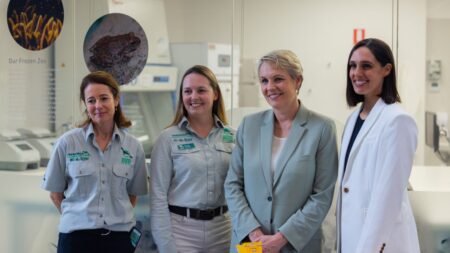There is much discussion about breaking the gender barriers in tech, but often, startups tend to follow large corporates, who often assign marketing and HR roles to female employees and development and management positions to male workers.
So we asked three leading female executives in the tech field – from the startup world and an established corporate – to give us their tips on how all companies, no matter how big or small, can smash the gender binary that still dictates much of the hiring and promoting decisions undertaken by Aussie businesses.
Gemma Lloyd, co-founder of Diverse City Careers
After spending 10 years working in the technology sector, Gemma Lloyd can cite both the good – and the very, very bad – ways a company can treat their female employees. Despite her attempts to gain insight into the companies she was going to work for during the interview phase, Ms Lloyd found she could not determine how female-friendly the places she applied for really were.
As she progressed through her career, one question kept resurfacing: how can women tell that the workplace they are entering will be female-friendly?
The answer: a job platform that pre-screens employers based on their policies, initiatives and culture around supporting women. After discussing the issues with friend Valeria Ignatieva, the duo co-founded Diverse City Careers (DCC), Australia’s only job site that puts women first, turning down 10 per cent of companies wanting to advertise due to their inadequate policies surrounding women at their workplace.
Here’s how she’s smashing bro-culture and unconscious bias:
“In order to test how diversity-friendly a company is, we at DCC have devised a 20-question criteria that looks at company policies such as flexible work, parental leave, mental health programs and initiatives targeted at proactively getting more women into leadership positions. Each question is weighted differently, and
“For startups, it’s a little different. If they’re very new – too new to have the policies or financial abilities for bigger diversity initiatives or programs in place – we look at the startup’s culture and its willingness to establish a great workplace for all first. We do this by interviewing their leadership team, by having a conversation about what their passion is, why do they want diversity and so on. I think you get a very good sense from that discussion what type of company they are
We want women to have access to a jobs network where all of the listed companies are transparent in their policies regarding women and diversity. We don’t let recruitment agencies advertise with us, and all the communication is directly with that employer. Applicants can go on the company website, can check what policies that company in place and decide whether it is the right place for them. We operate on a policy of massive trust, and we turn down business to make sure women are applying for jobs with the right companies.
Something that is really important to me, and what I will be focusing on at the Women in Tech and Telco summit, is unconscious bias. We need to recognise every person has unconscious bias, and what we can do to overcome it both on the organisation and individual levels.
Heather Catchpole and Karen Taylor-Brown
Led and co-founded by former ABC science journalist Heather Catchpole and publishing professional Karen Taylor, Refraction Media is a content company that specialises in producing media – whether it’s written content, videos, apps, publications, animations or more – with a focus on getting students, and especially, girls, interested in STEM and ICT careers.
They do this by showing them that creativity, arts, technology and science can go together seamlessly by using the formula: computer science (CS) + X, where ‘X’ is the passion, the problem to be solved, or another discipline.
As the co-owners and founders of Refraction Media, Ms Catchpole and Ms Taylor-Brown were intent on creating an internal culture that reflected their goal for gender diversity in the wider world. To do this, however, they first needed to acknowledge the unconscious bias present in every person:
“We began by experiencing the open access Google unconscious bias presentation, and it was an eye opener. We discovered that unconscious bias is inevitable but with awareness, founders can mitigate employment outcomes.
The only way to overcome – or at least, mitigate – unconscious bias is to do the training. That way, every founder will find out that everyone has built-in bias. This sounds negative, but it’s simply a mental short cut. Once this is acknowledged and accepted, you and your team can be challenged to push these mental boundaries.
It’s also a good idea to seek advice in areas where you don’t have the expertise. There are so many moving parts to starting a company, and many of these will have long term ramifications if they’re set up incorrectly. Where possible, find an expert who’s not like you; seek diversity in this area too.
And finally, take time to celebrate the wins as a team. When you’re starting a business, your team is close knit. Your wins are their wins. Reward effort that goes above and beyond, and learn from failure. Make sure these celebrations meet the needs of a diverse team too. Beers and ping pong isn’t going to appeal to everyone.
Debbie Taylor, executive general manager at NBN Co Limited
As someone who is responsible for managing the transformation and change programs at NBN co, Debbie Taylor is very conscious of the work that goes into establishing a diverse and inclusive workplace culture.
She shares her tips below:
“Supporting women in the workplace needs to be a whole-of-company approach. There needs to be support from the most senior levels within an organisation for developing both formal and informal networks. What is critically important is for this to be led by the leaders of the organisation – and for most organisations, it will be male-led simply due to the numbers.
Organisational-wide support can be provided through various mentoring programs specifically focused on women (senior leaders mentoring the talent pool of women across the business); gender diversity training; tracking gender metrics such as women in leadership roles; and generally putting gender bias and topics at the forefront of leaders’ minds. At nbn, we have a ‘women of nbn’ network on Workplace. This is hugely successful for us given the usability of Facebook and people’s familiarity with sharing ideas, news articles, photos and videos.
We also recognise our male-dominated gender representation and we monitor our gender metrics. Specifically, we focus on women in management to ensure we are creating the right environment to encourage women into the industry to see clear career paths and role models.
We have a range of formal programs for mentoring and coaching in place, networking groups on Workplace, unconscious bias training for employees, and a focus on female intake for our graduate program. While we don’t track it formally, we have a number of our Executive General Managers actively taking on the role as sponsors for identifying and promoting the visibility of emerging female talent.
Women Love Tech would like to thank Caroline Zielinski for this story.














